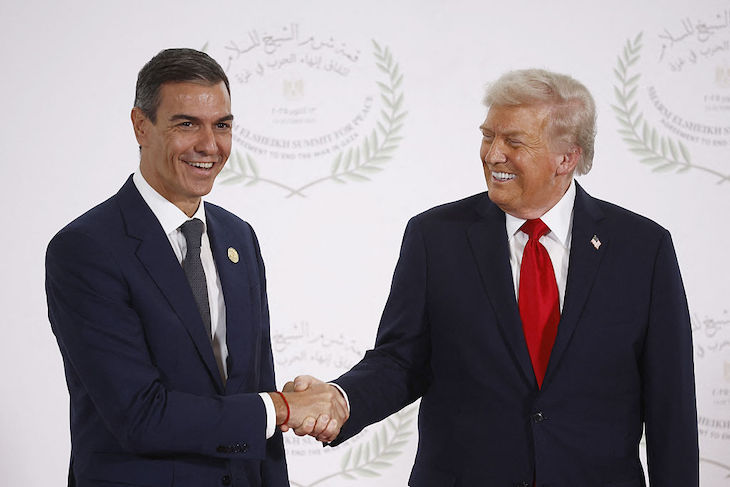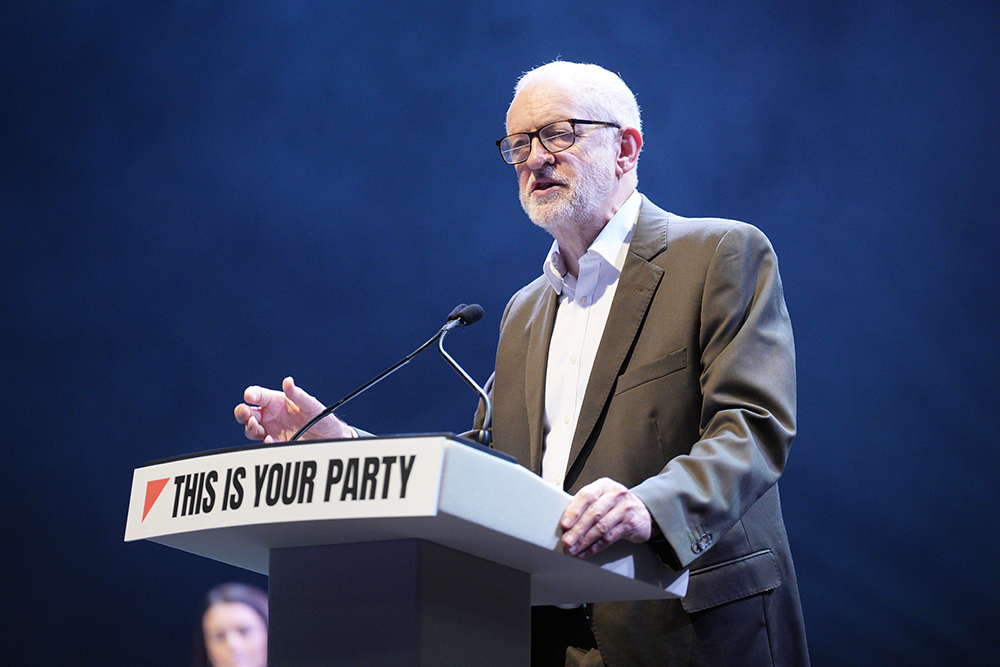There was a time not so long ago when Germany was US president Donald Trump’s favourite punching bag in Europe. During his first term in office, Trump had a penchant for biting Berlin’s ear off, blasting its political leadership as grossly incompetent, blaming the country for destroying itself by accepting a million refugees and wagging his finger at the Germans’ unwillingness to take more responsibility for their own defence.
Trump hasn’t forgotten what happened in the lead-up to the Nato summit over the summer
Yet those days are over. Trump, now in his second term, has a new European target in his crosshairs: Spain.
The land of Tempranillo and Jamón Serrano is the latest subject of Trumpian rage, and the issues at hand – inadequate defence spending and insufficient commitment to Europe’s collective defence – are the very same that caused such frigidness between the Americans and Germans. The Spanish government of left-of-centre prime minister Pedro Sánchez is, in the Trump administration’s view, not only refusing to meet the defence obligations it signed up to, but also injecting a schism in Nato at a time when the alliance is working toward implementing defence reforms – chief among them an increase in military expenditures to 5 per cent of gross domestic product by 2035.
Trump has a point. At 1.43 per cent of GDP, Spain had the second-lowest defence spending in Nato last year, behind only Luxembourg. Yes, the Spanish have committed themselves to beefing this figure up to 2 per cent of GDP by the end of the year, which will mean another €10 billion (£8.7 billion) or so into the coffers. But for Trump, a man obsessed with numbers and balance sheets, this is too little, too late. Again, he has a point; the 2 per cent of GDP benchmark prime minister Sánchez is so proud about fulfilling is no longer a target worth pursuing. In fact, Nato made a collective decision during last June’s annual summit that 2 per cent was inadequate to the task of beefing up European military capacity in the face of Russia’s continued aggression in Ukraine.
Trump hasn’t forgotten what happened in the lead-up to the Nato summit over the summer. In the days and weeks before the meeting, Nato member states agreed to endorse Trump’s demand that Nato elevate its defence spending guidelines to 5 per cent. Nato Secretary-General Mark Rutte was especially enthusiastic about the change. Spain, however, was the lone holdout, and because Nato works on consensus, Madrid could theoretically tank the entire enterprise by refusing to put their stamp of approval on the joint communique. Sanchez wrote a letter to Rutte in effect stating that Spain’s spending policies will be dictated by nobody other than Spain. The bid worked: Sánchez earned an exemption from the new rules, which allowed the alliance to approve its declaration without Spanish obstructionism.
Trump, though, wasn’t pleased and let everybody know it. ‘I like Spain, it’s a great place and they’re great people, but Spain is the only country out of all of the countries that refuses to pay,’ he told reporters during the summit. ‘They want a little bit of a free ride, but they’ll have to pay it back to us in trade, because I’m not going to let that happen.’ In other words: if Spain didn’t stop acting like a spoiled brat, it may have to be spanked.
His animosity toward Madrid has only strengthened in the months since. During an 10 October meeting with Finnish president Alexander Stubb in the White House, Trump advised that it may be time for Nato’s other members to boot Spain out of the alliance.
‘You have to call them and find why they are a laggard,’ Trump said. ‘They have no excuse not to do this…Maybe you should throw them out of Nato, frankly.’
That there is no way for Nato to suspend or expel a member is immaterial to Trump. The sentiment, reiterated days later when he called Spain ‘very disrespectful to Nato,’ is very much something Madrid needs to be worried about. To date, the Spanish government has resisted being pushed by Trump in any capacity, and the blunt reality is that popular opinion is on Sánchez’s side. Add the current configuration of the Spanish government, the bills associated with Spain’s huge welfare system and the country’s low threat environment due to its distance from Russia and Ukraine, and you can understand why the standoff isn’t going to end anytime soon.
For Germany, the current spat between Washington and Madrid will lessen the pressure. But the Germans deserve credit for helping themselves, as well by making the politically and financially painful moves required to transition the country from its decades-long peace footing. This includes passing a constitutional amendment that suspends the debt break on German defence spending above 1 per cent of GDP, promising to double the defence budget by 2029 and investing more cash into the infrastructure – roads, bridges and airports – that will be critical to transporting troops and equipment towards Nato’s eastern flank in a time of crisis.
As a result, German chancellor Friedrich Merz is no longer on the hot-seat. It’s Pedro Sánchez’s turn.







Comments